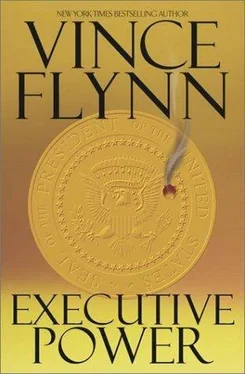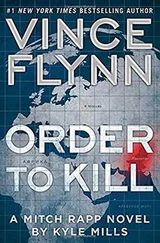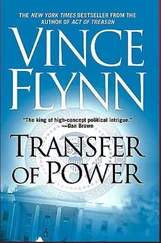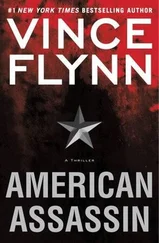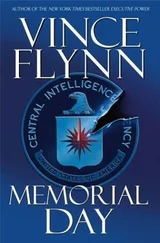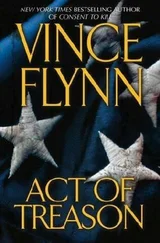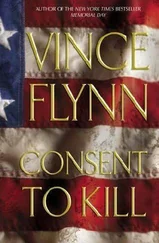The politicians marveled at America 's technological superiority.
There was one big problem, though; the enemy knew they were being watched and listened to, and went to great lengths to hide what they were doing from the big prying eyes and ears in the sky.
Everyone in Washington knew this, but it didn't stop groups like the State Department from pushing for more signal intelligence. The alternative was putting real men and women in the field and that could be very messy. Uncontrollable CIA case officers were a constant source of irritation for the State Department. They snooped around host countries, tended to drink too much, tried to recruit agents and generally behaved in a way that no gentleman or lady from Foggy Bottom would endorse. Even worse, if they got caught, the host country would expel innocent State Department employees along with the offending CIA case officer and the whole affair would upset the delicate dance of diplomacy.
The CIA had become just another Washington bureaucracy. A money-sucking black hole of political correctness. In short, the CIA was a reflection of the times and its political leaders. Now Rapp truly understood why Director Stansfield had done what he did. The recently deceased director of the Agency had fought hard to insulate the CIA from the political whims of Capitol Hill, but it was a Herculean task that no one man could perform. Seeing the winds of change approaching, Stansfield had created a covert counterterrorism unit known as the Orion Team. The group's mission was to operate in the dark and take the battle to the terrorists. Mitch Rapp had been the tip of that spear for the better part of a decade. He'd killed more men for his country than he could count, and he had come close to losing his own life more times than he dared to remember.
For the last several years he'd seriously considered getting out. Instinctively, he knew that one of these times, no matter how good he was, the breaks wouldn't go his way and he'd end up dead. The decision to make the move was finalized when he'd met Anna Rielly. She was only the second woman he'd ever loved, and the first had been a long time ago. Soon after meeting her he knew she was the one. It was time to get out of the killing business and get on with a normal life.
That had all been before the towers and the Pentagon were hit.
Now he wasn't so sure. An anger burned inside him. He knew the face of the enemy better than perhaps anyone in the country. It was the hideous face of Islamic fanaticism. It had taken all the restraint he could muster to not get on a plane and go over to Afghanistan.
Kennedy had convinced him not to. He was too important. She needed him right at her side, using his language skills and contacts in the region to run down leads and try to figure out what had happened.
Kennedy had vision, just like her mentor. She could see the goals of the competing agencies and interests in Washington and maneuver her way through the minefield. She knew that in the wake of 9/11 the politicians on the Hill would try to pin the whole thing on the CIA.
Never mind that beginning with the Church Hearings in the mid-seventies, it was the politicians who had pulled the CIA out of the spying business.
Then, in the eighties, it was the politicians again who told the CIA to break off any association with nefarious individuals, ignoring the fact that to catch the bad guys you actually had to talk to them and their associates from time to time. But the politicians on the Hill didn't want to hear any of it. The CIA either had to bat a thousand or get out of the hood. So ultimately, the politicians got exactly what they wanted. They created an agency that was afraid to take risks.
How could they have known in 1922, when Great Britain created the new country of Transjordan, that one day its capital of Amman would grow into a city of international intrigue? Amman, a city of over a million souls, was a dusty old town that had been cleaned up and dragged into the twenty-first century by the forward thinking King Hussein I and his son Abdullah II. Bordered to the east and south by Iraq and Saudi Arabia, to the north by Syria and to the west by Israel, Jordan was a cursed piece of land that was poor in mineral and oil deposits and plentiful in refugees. Palestinians, to be precise, and lots of them. For the first thirty or so years after the formation of Israel, Jordan moved in lock step with her Arab neighbors in calling for the annihilation of the Jewish state. But after getting decisively trounced in every military engagement with their Zionist neighbors Jordan began to think of Israel as a dog that was better left undisturbed, at least as far as outright wars were concerned.
If being cursed with a worthless piece of land wasn't enough, Jordan had to contend with a cast of neighbors that included the Middle East 's most notorious despot, the ultra wealthy and schizophrenic Saudi royal family and the Syrians, who for various twisted religious reasons hated the Jordanians almost as much as they hated the Jews. With no real resources or industry to build an economy, Jordan from its inception was dependent on foreign aid. At first it was the Brits, then the Arab League and then with the promise of better relations with Israel, the United States began to infuse millions of dollars in humanitarian, economic and military aid into the Hashemite Kingdom of Jordan.
King Hussein became masterful at playing both sides of the fence, taking money from both his Arab brothers and America. With great care he put his country on a course of neutrality and did not deviate even during the Gulf War. Despite immense pressure from the United States and Saudi Arabia, King Hussein chose not to jump into the fray.
Publicly he proclaimed that he would not take part in the butchering of the Iraqi people, privately he told his keepers that it would serve them better if a channel of communication was kept open with Baghdad.
King Hussein convinced President Bush that the Jordanian General Intelligence Department would provide him with invaluable information about what was going on inside Iraq. The Bush administration agreed and in return for cooperation with the General Intelligence Department the foreign aid spigot of the United States was only reduced instead of completely shut off.
At the time the agreement was reached King Hussein had no idea just how fruitful it would eventually be for his kingdom. During the years of sanctions that followed the Gulf War, Jordan became the lifeline of Iraq. Goods flowed in from Jordan like a river to the sea, and in exchange Jordanian coffers were filled with profits made from selling discounted Iraqi oil. Black market import-export companies sprang up in Jordan like weeds on an unkempt lawn. The French were the first to arrive, and they were quickly followed by many of their European neighbors and then the Chinese and the rest of the Pacific Rim and Asia. Jordan got a cut of everything and the entire racket became a massive boon to the Jordanian economy. All the while, with a wink and a nod, Jordan maintained her position of neutrality.
Amman was the place where Saddam's henchmen came to replenish the ruler's military supplies and shop for his grocery list of weapons of mass destruction. It was also where the CIA and Britain 's MI6 focused an increasing amount of their resources. Amman had become the Middle East's version of Cold War Berlin. Any country that was big enough to care had spies on the ground in Amman, and with so many intelligence agencies operating in the city it was almost impossible to do business without someone noticing.
That was why David had chosen to meet his Iraqi contact in the Jordanian capital. He wanted to settle a score, send a message and muddy the waters in one fell swoop. David's connection to Prince Omar and the Saudi royal family needed to be protected at all costs.
Читать дальше
